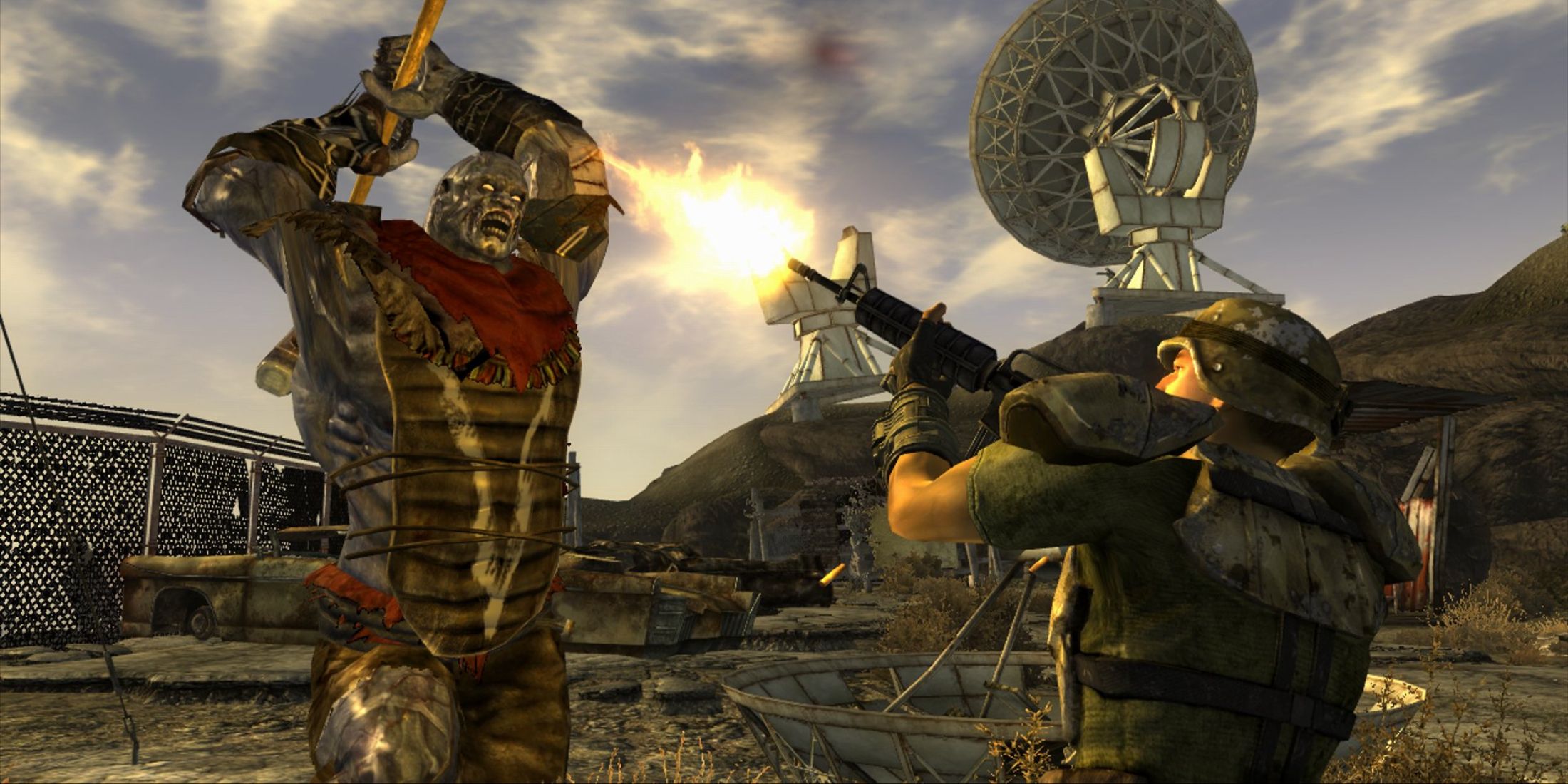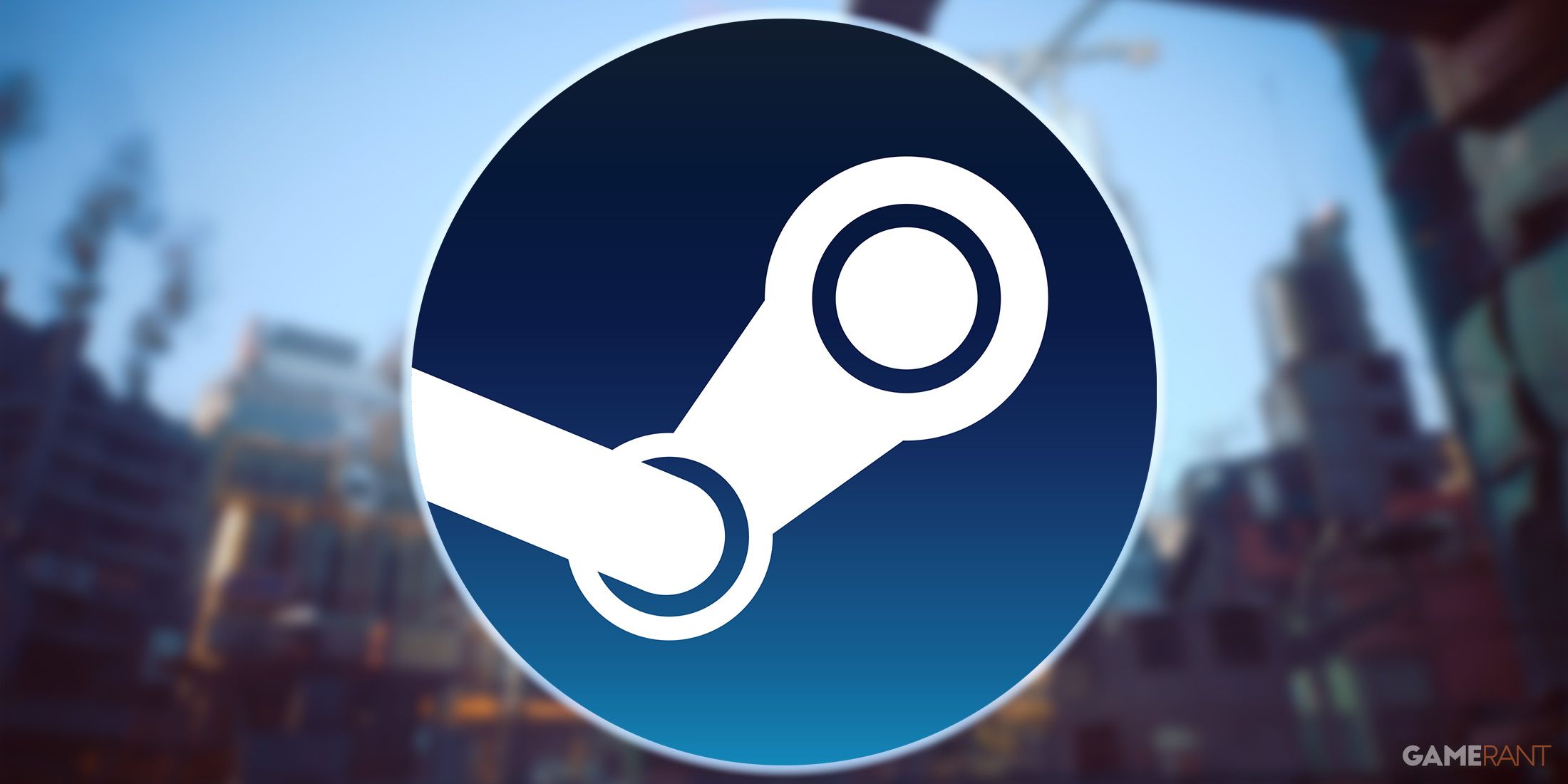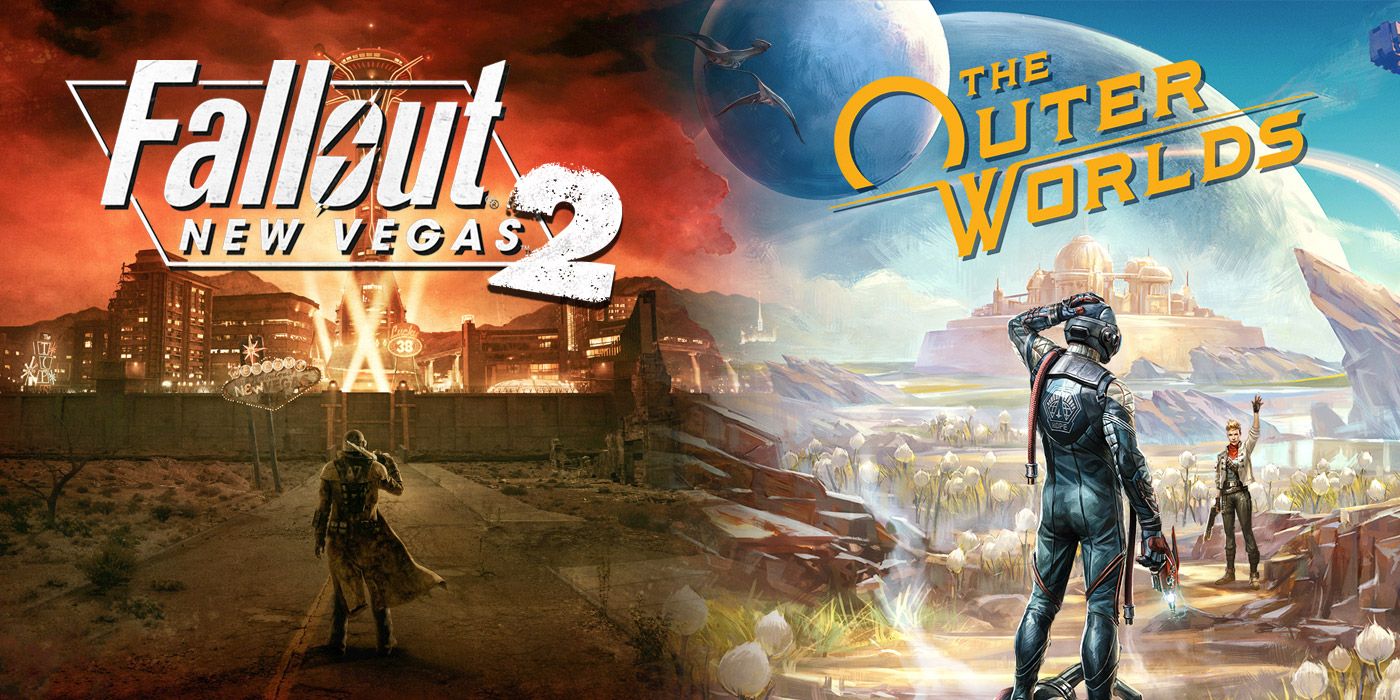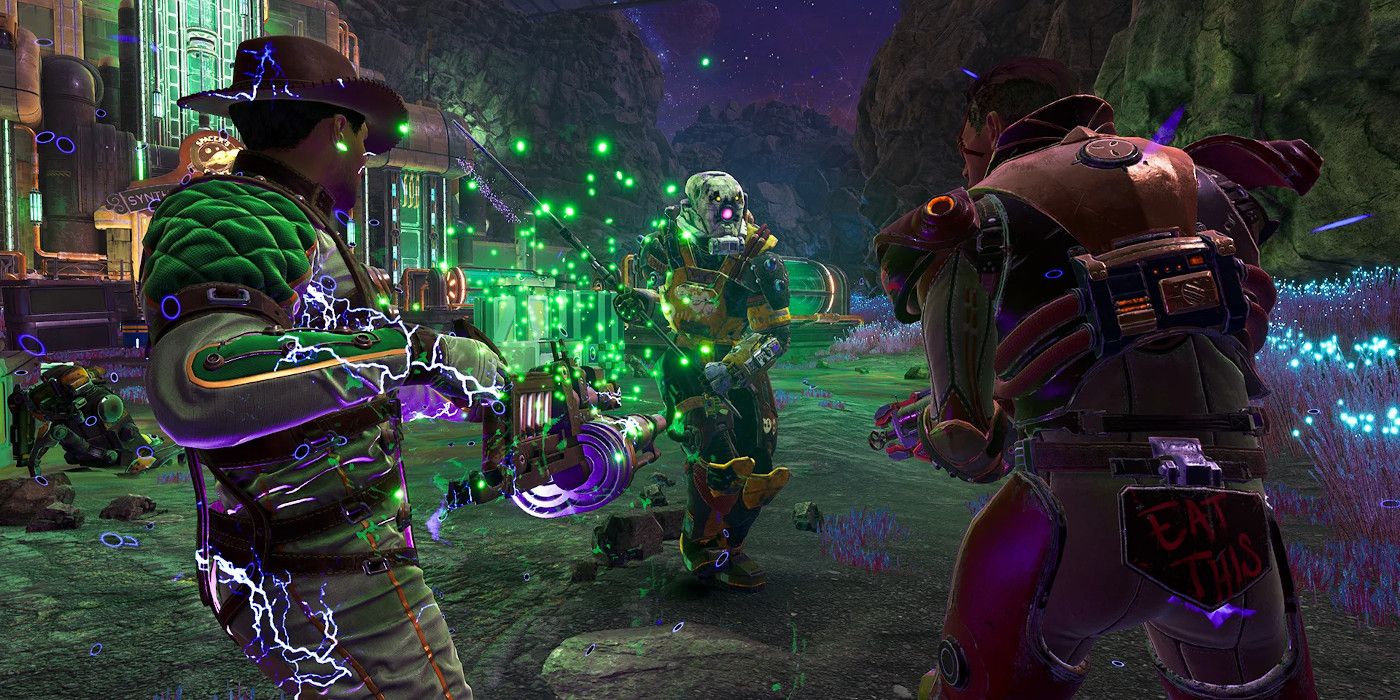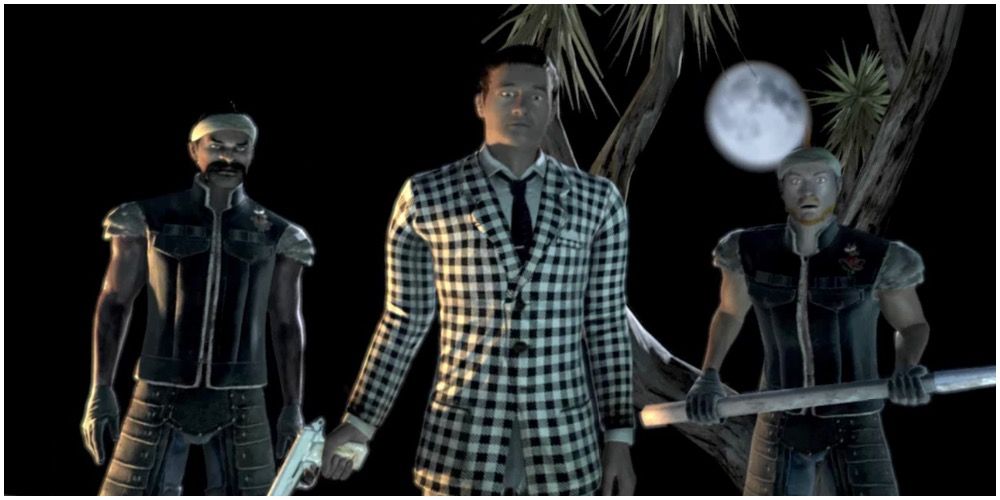Obsidian Entertainment and Bethesda will soon share a single roof, given Microsoft's acquisition of the latter. Many fans of both RPG studios have hoped that they might take advantage of this to collaborate once again and create a sequel to Fallout: New Vegas.
Obsidian developed the original Fallout: New Vegas back in 2010 to critical acclaim, and since then, Obsidian has also gone on to release its own original satirical sci-fi RPG, The Outer Worlds. However, if the studio is going to develop a sequel to New Vegas, it will need to avoid one problem with The Outer Worlds’ tone than the original nailed.
Humor and Violence in RPGs
Like the Fallout games, The Outer Worlds has a sense of humor. Characters in The Outer Worlds are over-the-top, its scenery is colorful, and the game uses much of its humor to criticize the kind of corporate control players seen enforced upon its inhabitants. However, the game’s attitude towards violence doesn’t always align with some of its other goals.
Life is cheap in The Outer Worlds. This is made abundantly clear from the game’s outset, where the player wakes up on an unknown planet and makes their way from an escape pod to a nearby town, killing every marauder they meet along the way. While the introduction to games like Skyrim are similarly violent, the higher stakes of Skyrim's opening dragon attack helps it strike a more balanced tone compared to The Outer Worlds, where the marauders aren't actively attacking the player but simply in-between them and their objective.
To add to the dissonance, in The Outer Worlds player companions and other NPCs tend to treat the constant loss of life around them without too much concern – despite the danger, the laid-back reaction from the world’s NPCs denies the world an immersive sense of threat. While this could complement the game’s comedic tone, it actually undermines some of the stakes of the game’s story, which relies on the player caring about the lives of NPCs.
If The Outer Worlds was purely a comedy, then its flippancy towards violence might fit well into the world. The problem is that The Outer Worlds isn’t always comedic, and there are serious moral dilemmas throughout the game. For example, an early quest in The Outer Worlds involves choosing sides between siding with a large corporation and a group of sustainable eco-activists using human bodies as fertilizer.
This decision in The Outer Worlds relies on the player being immersed in their character and working through the moral stakes of the dilemma from their character's point of view. However, it's difficult to be immersed in the decision when the game has encouraged the player to have little concern for human life up until that point. Any attempt to make the morally right choice is undermined as the player guns down enemies with ease while delivering messages back and forth between the two camps. The player can choose to sneak past enemies in The Outer Worlds, but there are no negative repercussions for just sprinting between locations killing any humanoid NPCs who get in the way, making violence almost unavoidable for any player who wants to avoid moving through the game at a snail’s pace.
Achieving the right tonal balance in a game with both violence and comedy is possible. Obsidian itself strikes the right balance in the original Fallout: New Vegas. Like The Outer Worlds, New Vegas has satirical edge, but the horror of its violence is not swept under the rug or undermined by that comedy.
Fallout's Tone VS The Outer Worlds'
The first thing the player experiences in Fallout: New Vegas is getting shot in the head, and from there, they can encounter some very grizzly scenes in the Mojave Wasteland from failed Vault experiments to ongoing crucifixions. Despite being random encounters in the world many of these moments are played horrifically straight, and the sense of threat is preserved. While the world of Fallout: New Vegas is humorous, that humor doesn’t undermine the immersion of the player in a genuinely dangerous setting.
The Outer Worlds’ setting is also portrayed as extremely violent, but the game doesn’t always strike the right tonal balance to prevent a clash between its violence and its more light-hearted elements. A primarily comedic series like Borderlands might be able to get away with broadly ignoring the implications of its violence or using it for a straight-forward laugh without throwing off its tone, but that’s harder to pull off in an RPG like The Outer Worlds, especially when some quests assume the player character will face a moral dilemma if human lives are involved.
Part of the problem is that while Fallout: New Vegas and Borderlands both use moments of violence for humor, the violence in The Outer Worlds feels broadly ignored by the game’s dramatic plot – most major NPCs and companions don’t seem particularly fazed by the violence around them, even those with a strong moral compass like Parvati. The Outer Worlds does attempt to dehumanize many of its human enemies by writing them off as insane “marauders” to make its violence more palatable to players.
In its latest DLC, Peril on Gorgon, the game even goes into more detail about the origins of the marauders. Ironically, making the effort to explain why it's okay to kill the marauders makes the game’s attitude to violence seem even more bizarrely dissonant, giving the player the implicit go-ahead to gun down as many kinds of a certain human enemy as they would like despite also asking the player to consider ethical dilemmas where human lives are at stake. It's a sudden enough tonal shift to give a player whiplash.
While New Vegas' enemy factions like the Powder Gangers can be engaged and even sided with, the same can not be said of most enemies in The Outer Worlds. Giving generally hostile NPCs their own perspectives and goals adds a degree of moral complexity to the RP experience - as well as additional roleplaying opportunities - that The Outer Worlds denies its player in their interactions with most enemy NPCs.
Any sequel to Fallout: New Vegas will need to ensure that its handling of in-game violence doesn’t end up undermining the game’s tone when it wants to make human lives seem valuable. The Fallout series will always have a sense of humor, but Fallout: New Vegas shows that a game can have a sense of humor without losing its strong dramatic drive.
The Outer Worlds is not a bad game by any stretch of the imagination. The problem with The Outer Worlds isn’t that it portrays a violent world, or that the player character themself is engaged in that violence. However, the game ultimately proves less immersive than Fallout: New Vegas because by attempting to find ways to excuse or ignore most of the violence in the game, The Outer Worlds undermines the moments when it wants players to care for the lives of its characters. Any sequel developed for Fallout: New Vegas needs to avoid the same mistake.
Fallout: New Vegas 2 isn't confirmed to be in development.

